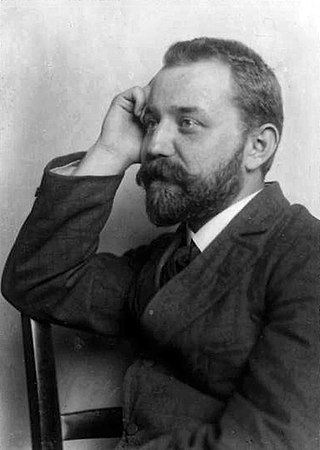
Rosemarie Schuder was a German writer.
The Konrad Adenauer Prize was an award by the Germany Foundation, a national conservative organisation associated with the Christian Democratic Union, from 1967 to 2001 It was given annually between 1973 and 1975, then every two years, with exceptions, from 1975 to 2001. It was given to right-wing intellectuals and was named in memory of statesman and former German Chancellor Konrad Adenauer. The journalism and literary prizes are now both separate prizes altogether.
Wolfgang Schwenke was a German zoologist and entomologist.
Paul Johannes Kevenhörster is Professor Emeritus of Political Science at the Westphalian William's University of Muenster in Germany. His work focuses on politics in Japan, municipal government and international development co-operation. He has served in academia as well as in a government agency and as consultant to a variety of organisations. Since 1966 Paul Kevenhörster is married to Gisela Drerup. They have three daughters, Uta, Eva and Ina, three granddaughters and a grandson, Milla and Emma Kevenhörster, Sophie and Lucas Russell.

Wolfgang Rautenberg was a German mathematician and logician whose areas of research were model theory, non-classical logic, modal logic, temporal logic and self reference.

Hansi Bochow-Blüthgen was a German writer, editor, and translator in the Post-war years.
Kürschners Deutscher Gelehrten-Kalender, formerly subtitled Lexikon der lebenden deutschsprachigen Wissenschaftler, is a German language biographical and bibliographical encyclopedia of scientists and scholars from the German-speaking part of Europe. It is published by Walter de Gruyter. The first edition appeared in 1925, edited by Gerhard Lüdtke. Prior to the 9th edition, it consisted of one volume, but with the 6th edition in 1941 and then again from the 9th in 1961 it was extended to two volumes. Since the 22nd edition in 2009, it includes four volumes. The 28th edition appeared in 2016. The encyclopedia generally only includes academics who are active researchers at universities or research institutes, and who hold the Habilitation or are full professors, or have equivalent qualifications.

Henry Keazor is a German art historian. He is a professor of art history at Heidelberg University.
The Kürschners Deutscher Literatur-Kalender is a reference work that currently contains around 12,000 bio-bibliographic articles and addresses of writers of German literature, as well as translators, publishers, agencies, radio stations, writers' associations, academies, literary magazines and feuilletons, literary prizes and awards in the German-speaking countries. Currently it is published every other year in two volumes by the publisher Walter de Gruyter. The reference work is named after the specialist in German studies Joseph Kürschner.
Jakob Kinau was a German sailor, sergeant of the Imperial German Navy, writer, publisher and customs officer.
Karl Günther Ernst Felix Becker was a German art historian, best known today for the project Thieme-Becker.
Martin Sommerfeld was a Jewish emigre from Nazi Germany to the U.S. who was a professor at the University of Frankfurt and subsequently at Columbia University, the City College of New York, Smith College, and Middlebury College, where he taught German language and literature. He authored and edited a number of volumes on German literature from the 16th to the 20th centuries, and he wrote numerous contributions to the four-volume Reallexikon der deutschen Literaturgeschichte (1925–31).
Reinhold Hammerstein was a German musicologist.

Adolph Kohut was a German-Hungarian journalist, literature and cultural historian, biographer, recitator and translator from Hungarian origin.
Hedwig Forstreuter, was a German journalist and writer.
The Kürschners Handbücher, originally published by Joseph Kürschner (1853–1902), is a series of biographical reference works. Many entries are based on self information. Since the takeover by the Saur-Verlag publishing House in Munich, a self-suggestion is also possible. The series originated from Kürschners Deutscher Literatur-Kalender, which first appeared in 1879.

Paula von Reznicek, was a German tennis player, journalist and author.
Annette Schenk Thoma was a German author, composer, and folklorist who is best remembered for her composition Deutsche Bauernmesse, a mass in Bavarian adapting folk tunes.
Wolfgang Kosack /'vɔlfgaŋ 'ko:zak/ is a German egyptologist, translator and coptologist.

Hans Mackowsky was a German art historian.







